Chateaux’s Nick Kammerman navigates working from home, the future of blockchain, and his gratitude for technology during the pandemic.
The range of emotions that I have experienced over the past several weeks has been dizzying. I have felt terror and immense, unconditional love. I have cried, laughed hysterically, shaken with concern, and been bowled over by the kindness of some and disappointed by the actions of others. This global pandemic has stripped us to our core. One of the most surprising crutches that all of us have leaned on is technology.
The idea that technology would be the thing that helps us get through what feels like the end of the world is truly ironic. A conversation about this only a few months ago would have evoked jokes about Skynet, bad AI movies, The Matrix, or HAL. But our high-tech world has proven to be more powerful and more comforting than we could have possibly imagined.
On the grand scale, technology and people will work together to help defeat COVID-19. Our human actions, including lack of interaction via social distancing, will be the key factor that helps heal the world. But it is technology that has taught us how. We read endlessly about the need to “flatten the curve”—this is taken straight from the usage of data analytics. We drown ourselves in graphs, models, trends, timelines and predictions often without recognizing that these things are being provided to us by machine learning. IoT devices are being used to help with ventilators and 3D printers are being enlisted to create masks and other personal protective equipment. These examples demonstrate how state-of-the-art and emerging technologies are doing their part to help save us.
On a macro level, it is clear how technology is working to help get us through the crisis. This reliance and dependence (as well as trust) in technology is even more obvious on the micro, individual level. As we all sit homebound, for what seems like an endless time, we are never actually disconnected. I cannot tell you how many times I have been thankful that, no matter how stir-crazy I get, I still have the internet. Netflix, FaceTime, stupid memes, texting with friends…these technological advances that we so often take for granted have brought us together in this time of need. As much as we are keeping our distance (six feet at a minimum!) we are closer than ever: the other night, I had the joy of speaking to a childhood friend, currently living in China, on a Zoom conference. I could have had the call with him two months ago and it would have been great. But now it was more cathartic than I could have possibly imagined, and despite being as far from each other as physically possible, I felt as close to him as I did when he lived up the road from me in grade school.
It wouldn’t be a post from me if I didn’t mention blockchain. (If you know me, you know I constantly evangelize blockchain and its benefits.) As I’ve discussed, technology is helping to get us through, playing a more vital role than maybe we care to think about. But I think about blockchain often. Now more than ever, the need to have information available digitally and through a decentralized platform seems like a requirement rather than a luxury. And people in high places are starting to recognize this fact, too. In the midst of this pandemic, DHS named Blockchain Managers as “essential employees” in food distribution organizations. Food and supply chain tracking is more vital than ever before and blockchain has been ahead of the curve in ensuring these essential needs are processed, transported, and tracked in the safest and securest way possible. This virtual, remote world we are living in will not go away. It will expand. The need for reliable, immutable data will become crucial in areas where we didn’t realize it before: voting, electronic medical records, wills and trusts, land records and countless other vital areas….
But that’s a post for a different day.
For now, stay inside, wash your hands, catch up with friends and watch the latest shows on Netflix. Technology is our partner—we will get through this together!








